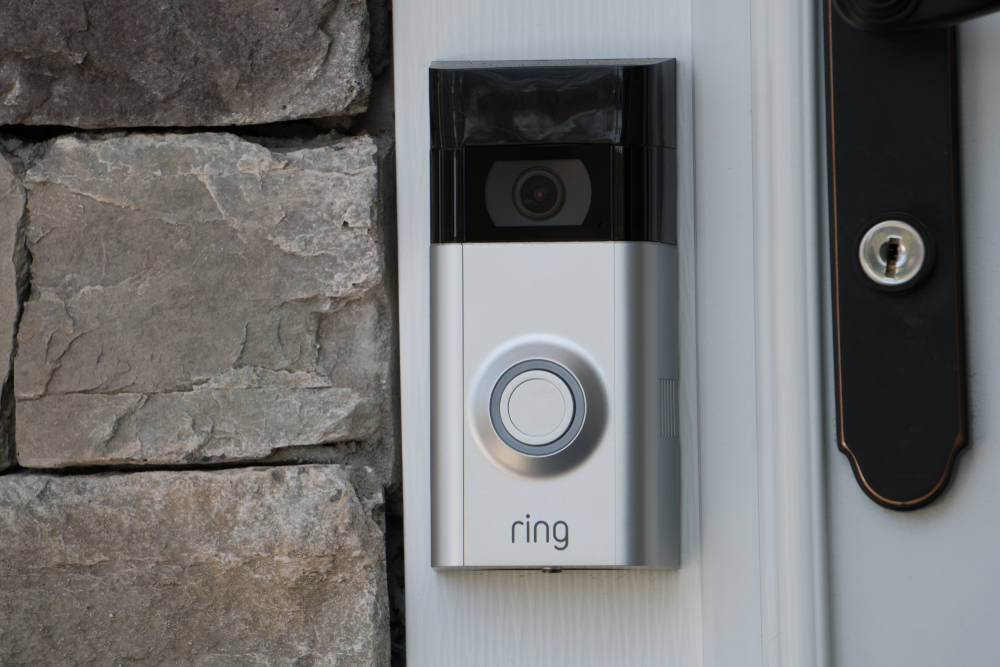Amazon Ring Sounds Death Knell For Surveillance As A Service

Surveillance doorbell maker Amazon Ring on Wednesday announced it is discontinuing an option that allowed law enforcement agencies to request video footage without a warrant.
The internet-connected security vendor is sunsetting the Request for Assistance (RFA) tool – a feature of its Neighbors app that enables authorities to ask Ring customers for their video recordings.And now no more, at least in the US where the Neighbors app operates.
"Public safety agencies like fire and police departments can still use the Neighbors app to share helpful safety tips, updates, and community events," the vendor explained. "They will no longer be able to use the RFA tool to request and receive video in the app."
After its acquisition of Ring in 2018, Amazon began partnering with local law enforcement to provide users of its Neighbors app with real-time crime and safety information – including video from customers' cameras.
"Over the past few years we have learned that, when neighbors, the Ring team and law enforcement all work together, we can create safer communities," declared Jamie Siminoff, chief inventor and founder of Ring, at the time. "Neighbors is meant to facilitate real-time communication between these groups, while maintaining neighbor privacy first and foremost."
In 2021, an Oxford County Court judge in the UK found otherwise – that Ring did not maintain neighbor privacy. Judge Melissa Clarke ruled that an Amazon Ring doorbell violated the UK's 2018 Data Protection Act by capturing audio beyond the range of its video capability. But in general, Ring is lawful in the UK and residents simply have to abide by the Information Commissioner's Office guidelines for CCTV camera placement.
In the US, where there's no federal privacy law and only a fig leaf of narrowly focused privacy regulations, Ring doorbells remain commonplace and haven't so far presented much legal risk. While some scholars argue that Ring violates US privacy rights, Congress has yet to address the core issues – that privately captured surveillance isn't subject to the same limitations as surveillance conducted by authorities, and people may not have the privacy they expect amid ubiquitous video cameras.
- Amazon Ring, Alexa accused of every nightmare IoT security fail you can imagine
- Amazon accused of being a monopolist in FTC lawsuit
- If you like to play along with the illusion of privacy, smart devices are a dumb idea
- Amazon confirms it locked Microsoft engineer out of his Echo gear over false claim
So Ring's decision to stop facilitating the sharing of doorbell video with authorities looks like a positive development to privacy groups.
"Years ago, after public outcry and a lot of criticism from EFF [The Electronic Frontier Foundation] and other organizations, Ring ended its practice of allowing police to automatically send requests for footage to the email inbox of users, opting instead for a system where police had to publicly post requests onto Amazon's Neighbors app," explained Matthew Guariglia, senior policy analyst at the EFF. "Now, Ring hopefully will altogether be out of the business of platforming casual and warrantless police requests for footage to its users."
Guariglia argued that while Ring has been forced to make some concessions – like a settlement with the FTC for lax data handling – the removal of the RFA tool isn't likely to put an end to police asking for Ring footage without a warrant. And he urged Ring users to exercise their right to request that police present a warrant to obtain Ring recordings.
Evan Greer, director of Fight for the Future, offered a similarly cautious appreciation of Ring's removal of its RFA tool.
"Ring shutting down the 'red carpet' surveillance portal they offered to police is unquestionably a victory for the coalition of racial justice and human rights advocates that have been calling to end these partnerships for years," she wrote in an emailed statement. "The ability for law enforcement to use the Neighbors app to mass-request footage from camera owners was always dangerous, and had a documented effect of exacerbating racial profiling."
However, Greer warned that this only scratches the surface of "Ring's dystopian business model" and urged federal, state, and local lawmakers to ban private surveillance partnerships like the ones undertaken by Ring and to place limits on private surveillance coverage when it compromises other people's privacy rights. ®
From Chip War To Cloud War: The Next Frontier In Global Tech Competition
The global chip war, characterized by intense competition among nations and corporations for supremacy in semiconductor ... Read more
The High Stakes Of Tech Regulation: Security Risks And Market Dynamics
The influence of tech giants in the global economy continues to grow, raising crucial questions about how to balance sec... Read more
The Tyranny Of Instagram Interiors: Why It's Time To Break Free From Algorithm-Driven Aesthetics
Instagram has become a dominant force in shaping interior design trends, offering a seemingly endless stream of inspirat... Read more
The Data Crunch In AI: Strategies For Sustainability
Exploring solutions to the imminent exhaustion of internet data for AI training.As the artificial intelligence (AI) indu... Read more
Google Abandons Four-Year Effort To Remove Cookies From Chrome Browser
After four years of dedicated effort, Google has decided to abandon its plan to remove third-party cookies from its Chro... Read more
LinkedIn Embraces AI And Gamification To Drive User Engagement And Revenue
In an effort to tackle slowing revenue growth and enhance user engagement, LinkedIn is turning to artificial intelligenc... Read more

